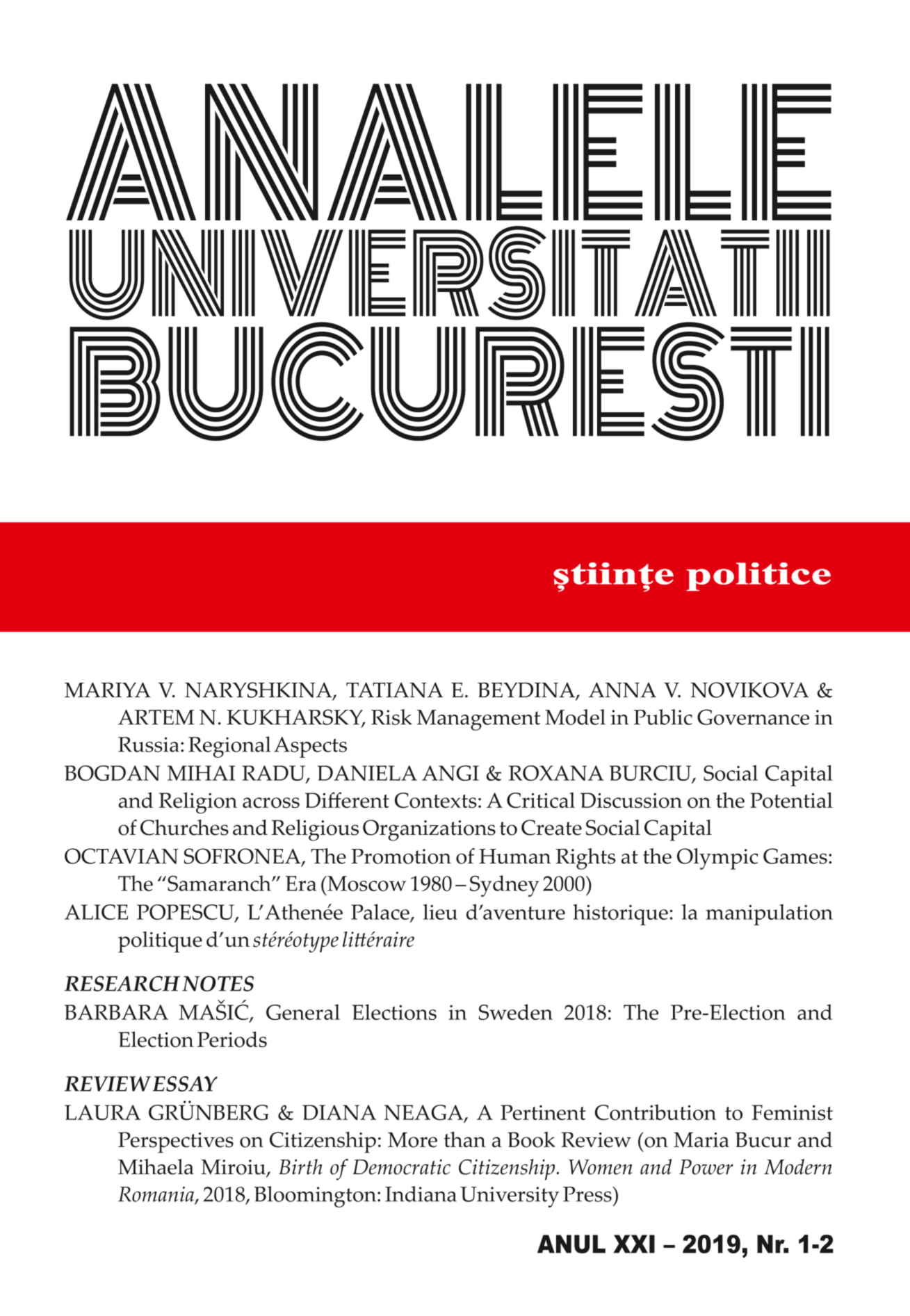The Promotion of Human Rights at the Olympic Games: The “Samaranch” Era (Moscow 1980 – Sydney 2000)
The Promotion of Human Rights at the Olympic Games: The “Samaranch” Era (Moscow 1980 – Sydney 2000)
Author(s): Octavian SofroneaSubject(s): Politics / Political Sciences, Politics, Human Rights and Humanitarian Law, Geopolitics
Published by: Editura Universităţii din Bucureşti
Keywords: boycott; commercialism; human rights; Olympic Games; J.A. Samaranch;
Summary/Abstract: The Olympic Games represent a homage paid to the supreme sporting event, which should remain a magical contest, full of passion and humanism. This competition needs to be protected all over the world, but now more than ever because of the usual excesses of violence, rivalry and nationalism, more or less explicit, or a series of complex situations, for example, Iraq, Afghanistan, countries in conflict in Africa, continued warfare due to poverty or excess of oil in Latin America and the Middle East, eternal Arab-Israeli conflict, migration, health threats etc. Paradoxically, the Olympic Games must be enjoyed and regretted for gaining so much importance, respectively on a sports level they become increasingly significant despite the existence of world championships for each sports discipline, and from the social perspective the Olympic Games are the perfect scene for exposing at the highest level the demands, the protests, and the fight for protecting the fundamental human rights.This article analyzes how human rights were promoted within the Olympic Games during the period when at the presidency of the International Olympic Committee (IOC) was in charge Juan Antonio Samaranch. In 1980, Samaranch became the president of the IOC, a position he will hold for twenty-one years and which will allow him to manage two major revolutions of sport: women's participation in all Olympic competitions and economic expansion. With Samaranch at the helm, women had access to all the competitions of the men's program, except boxing and wrestling, and the professionalism gained the right to participate officially, with athletes rewarded by sponsors before and after the competitions.
Journal: Analele Universităţii din Bucureşti. Seria Ştiinţe Politice
- Issue Year: XXI/2019
- Issue No: 1-2
- Page Range: 43-59
- Page Count: 16
- Language: English

